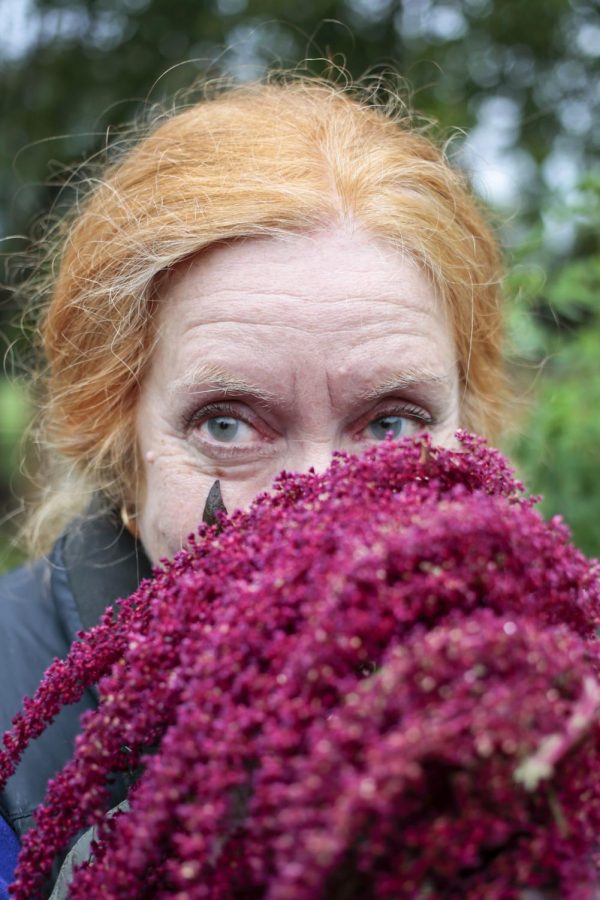The Art of Life: Seasoned folk studies professor’s passions for music, knitting and nature
April 15, 2021
Three published books, a successful American roots radio show, and 32 years of teaching folk studies at Western Kentucky University. Professor Erika Brady, born and raised in Washington D.C., enjoys sharing her many passions with her students and others.
“I’m trying to open my students’ eyes to things that are all around them,” Brady said.
Professor Brady began teaching folk studies at WKU in 1989. She originally started as a one-year faculty substitute, but became a full-time professor in the Folk Studies and Anthropology Department.
She graduated from Harvard Radcliffe with a major in folk studies, and hosted her first radio show there.
Professor Brady has been hosting the Barren River Breakdown since 1997. She has worked with many hosts, and currently hosts the show with David Baxter. When Brady took on the show, she decided to change the format.
“I love bluegrass – it’s a big part of my musical background – but I don’t want to program a show that’s predominantly bluegrass,” Brady said.
She also decided to change the show from fully acoustic and introduce electric music to the program. While this came with backlash, Brady stated that this is how she built a passionate audience for the Barren River Breakdown.
Along with hosting a successful radio show, Brady has had three books published. She wrote her first book, A Spiral Way, shortly after graduate school. She wrote it about the phonograph and how it changed ethnography after she worked on preserving Native American music and gained experience using phonograph cylinders to record music.
Along with this, she has a bibliographical book, Family Folklore, and a book about community health beliefs and formal medicine called Healing Logics.
Brady has an interest in medicine, and has worked with the University of Louisville and other medical schools on the subject of nonconventional health belief systems.
“Illness is a biological fact,” Brady said. “But health is a cultural construct.”
In her free time, Brady has picked up an interest in clay. She came across the hobby about a year ago, and has been working on it ever since.
“I like working with my hands – I’m a knitter, a spinner, a weaver – I love doing all of those things, but clay has really captivated me,” Brady said.
After teaching at WKU for 32 years, Brady plans on retiring after next year. She plans to start a network in textile arts with some friends of hers for knitters, growers, and people who have interest in making clothes. Along with this, she plans to continue working with clay and making music.
“Music will always be a part of my life,” Brady said.
Jacob Latimer can be reached at [email protected]. Follow him on Twitter @jacoblatimer_.
























